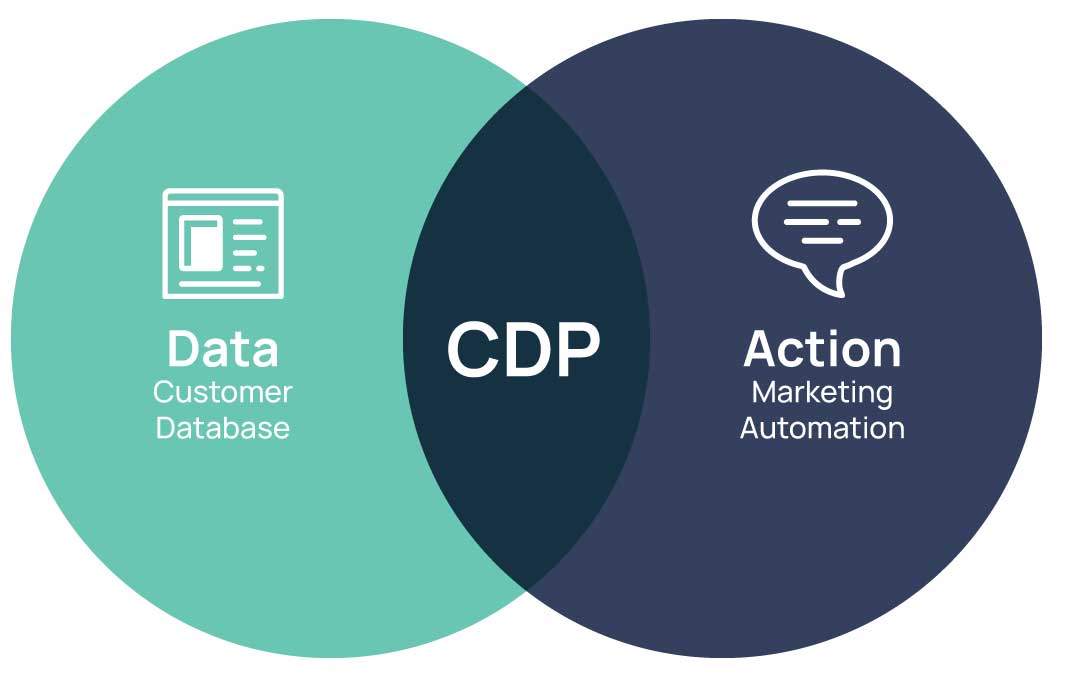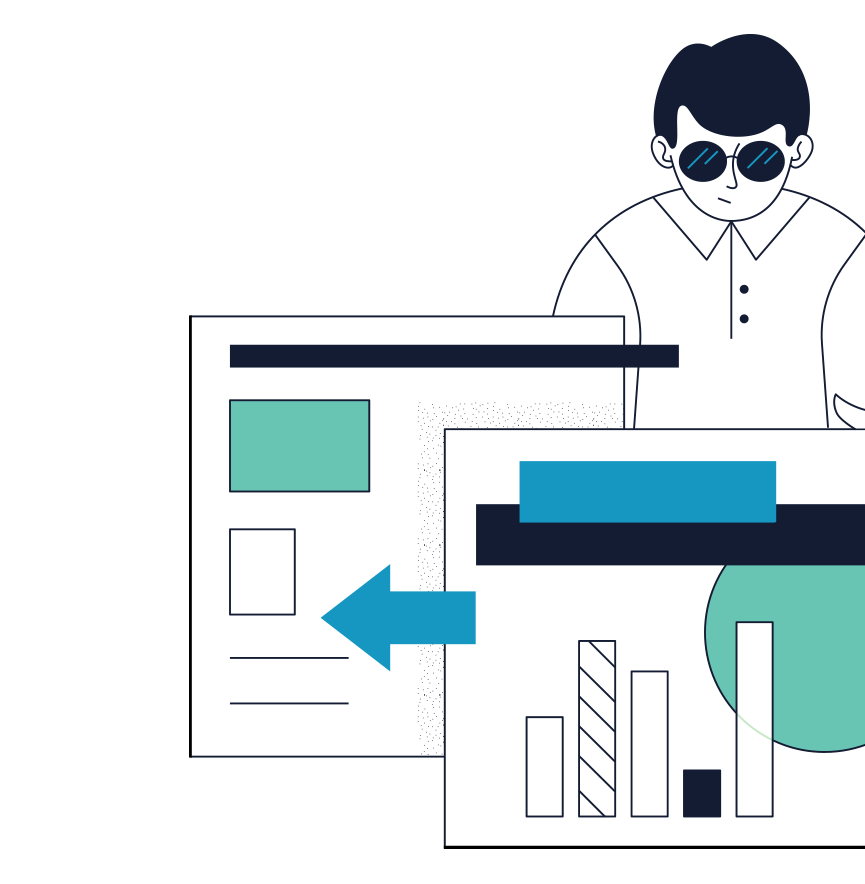In almost all cases, our answer is “it depends, and it requires an analysis into your business goals.” The analysis starts with aligning on what Data Cloud is, what it isn’t, and how it can solve unique data segmentation challenges in the healthcare industry.
Let’s get one thing straight – Salesforce Data Cloud is still a customer data platform (CDP).
What is a CDP?
CDPs solve data and engagement challenges. At the highest level, these challenges include:
- Disparate data across sales, marketing, operations, and clinical teams
- Inaccurate patient or customer identification
- Inability to segment based on demographics, behavior, firmographics, and population health
A customer data platform synthesizes data and action, and it serves a different function than a CRM, EHR, or EMR.

For instance, customer relationship management platforms (CRMs) have historically served as a source of truth for data. Marketing automation tools paved the way for that data to be actionable through email campaigns, digital advertising, or web personalization.
Healthcare companies like providers, med tech, pharmaceuticals, and payers rely on even more crucial systems in addition to a CRM. When you consider platforms like EHRs, EMRs, and ERPs – it becomes clear that a solution is needed to unify, segment, and make sense of massive amounts of disparate data, and this is precisely where a CDP fits within healthcare.
Unifying, Segmenting, and Analyzing Data
Healthcare B2B and B2C companies store data in CRMs, ERPs, and accounting systems. B2C companies also track patient information in EMRs and EHRs, and this data is subject to complicated HIPAA compliance and regulatory requirements. As a result, it’s clear that first-party data in the world of healthcare is fragmented and complex.
To make matters worse, cookies and third-party data are becoming less reliable marketing data sources. As a result, segmentation, personalization, and engagement will rely on first-party data in 2023 and beyond.
This is where CDPs (and Data Cloud) come in. They weave together data from platforms across sales, marketing, operations, accounting, and clinical departments to create 360° patient and customer profiles. Data is further enriched by AI to generate population health groups, create new “look-alike” audiences, and predict the best courses of action for marketing and sales programs.
This means that engagement can be personalized to every persona without relying on third-party data, whether you’re a B2B or B2C healthcare company.
Do I need a CDP?
In our experience, these are the most common issues we unveil during discovery sessions with our healthcare clients:
- Data is siloed across multiple CRMs, ERPs, EHRs, and EMRs
- Use of marketing data may not be HIPAA compliant
- Segmentation of patient information based on demographics, conditions, or behaviors is not possible
- Aligning patients into population health groups is not possible
- There is no plan in place to enrich first-party data as third-party data becomes more limited
- Engagement is not aligned with patient or customer preferences
- Syncing anonymous data with a known identity after acquisition is not possible
These are just a few of the problems CDPs can help resolve. If you’re experiencing any (or all) of these, it’s worth considering the benefits of a CDP, and more specifically, Salesforce Data Cloud.
As patients and clients increasingly demand connected and personalized experiences, it’s less a question of if but when an integrated CDP will be a standard part of the healthcare tech stack.


 Written by Matt Fiel
Written by Matt Fiel